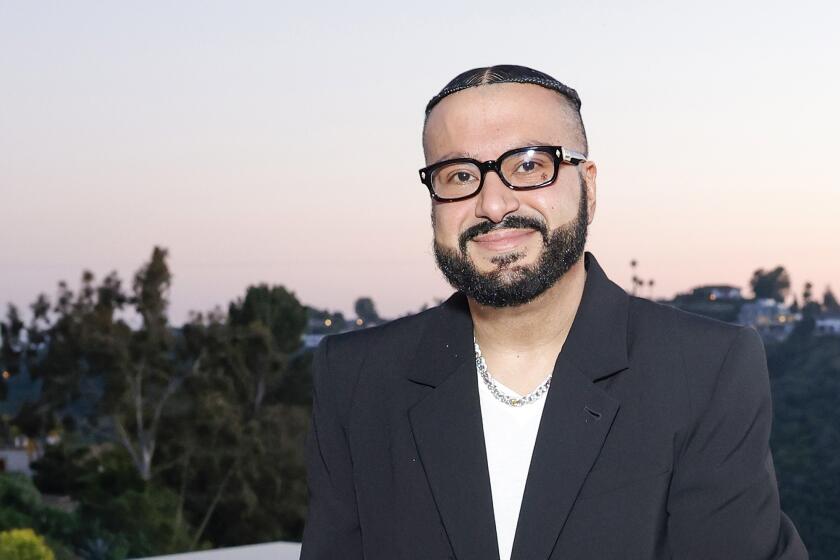Death Penalty Is Reversed in 1981 Riverside Murder
A federal appeals court in San Francisco reversed a decades-old death sentence Thursday partly because the defense lawyer, a Riverside County public defender, compared his client to Charles Manson during closing arguments in the trial’s penalty phase.
The court also faulted the attorney for failing to investigate evidence that the defendant had been severely abused as a child.
In a 3-0 ruling, the U.S. 9th Circuit Court of Appeals said the defense lawyer’s performance was well below professional standards and prejudiced his client’s case. Consequently, the court held that Richard Boyde is entitled to a new penalty phase trial or to have his sentence reduced to life without parole. The court upheld Boyde’s first-degree murder verdict.
Boyde has been on death row more than two decades for the Jan. 15, 1981, robbery-murder of a popular football and wrestling coach at Arlington High School in Riverside who was moonlighting as a 7-Eleven clerk.
Boyde, then 24, and his 18-old-nephew abducted Dick Gibson from the Riverside convenience store, robbed him of $33 and shot him in the head in a nearby orange grove. The nephew, Carl Ellison, was convicted of second-degree murder and sentenced to 25 years to life.
Writing for the 9th Circuit panel, Judge Alex Kozinski, an appointee of President Reagan, lambasted Boyde’s lawyer for deciding during the penalty phase to read a passage from “Helter Skelter,” the bestselling book about Manson, the notorious cult leader who is serving life in prison for the murder of actress Sharon Tate and six others in Los Angeles in 1969.
Kozinski noted that the defense lawyer had tried to elicit sympathy for his client by telling the jury that Boyde, who had been in trouble with the law since he was a youth, was a product of California’s youth and corrections system.
The attorney read a passage from “Helter Skelter” in which Manson, representing himself, told a jury, “You may blame me all you wish, but I was born and raised and taught and learned to live and breathe in your institutions, your prisons.” Then the lawyer said, “And Richard Boyde, to a certain extent, is a child of your institutions.”
Said Kozinski: “It is difficult to conceive of any possible justification for referring to a notorious mass murderer in trying to persuade the jury to spare Boyde’s life, and certainly not one that warrants comparing Boyde to that murderer.”
The judge also said he found it “inexplicable” that the defense lawyer quoted an article by author Norman Mailer in which Mailer opined that a “male leading a dull life, full of oppression, who finds himself a little more choked with rage each year, will secretly be drawn to capital punishment as a release from the monotony of his existence.”
“Thus,” Kozinski wrote, the defense lawyer “suggested Boyde committed murder ‘just to get a little attention,’ and that he wanted to be caught ‘to destroy himself.’ ” Kozinski was joined in the decision by judges Jerome Faris and Barry G. Silverman.
Noting earlier Supreme Court decisions that defense lawyers have a duty to investigate clients’ backgrounds, Kozinski also found that Boyde’s lawyer fell short in failing to look into evidence of abuse unearthed by his investigator.
Boyde’s youngest sister, Helen Kendricks, told the investigator that their parents inflicted physical abuse on the children.
In federal court, during Boyde’s constitutional challenge to his sentence, Kendricks testified that Boyde’s mother once had beaten him with an extension cord. When he didn’t cry, Kendricks said, the mother responded by promising that “she was going to keep beating him until he cried.”
On another occasion, Kendricks said, the mother hit him in the head with a vase with enough force that “it drew blood and he had to get stitches.” Kendricks testified that their father meted out even more severe beatings.
“Had counsel asked Kendricks for more details about Boyde’s beatings, he would have learned how severe they had been,” Kozinski wrote.
Instead, the defense lawyer elicited testimony from the abusing parents that Boyde had had a normal childhood. “The jury, left to wonder how Boyde learned to commit ... violent acts, could not look to childhood as an explanation -- but must instead have concluded that he grew violent despite his childhood,” Kozinski wrote.
Boyde’s death sentence was upheld by the state Supreme Court on a 4-3 vote in 1988. In 1990, the U.S. Supreme Court narrowly affirmed the death sentence in a ruling that upheld the constitutionality of jury instructions used in the 1981 trial.
New defense lawyers, led by Robert E. Darby of Los Angeles, launched a federal challenge to the conviction and death sentence in 1991. A federal trial judge upheld them a decade later, but the 9th Circuit went the other way.
Darby said Thursday that he was disappointed that the court had spurned all his arguments about the guilt phase of the trial, but was pleased that Boyde’s death sentence was overturned.
Nathan Barankin, a spokesman for the state attorney general, said the office agreed with the court’s ruling on guilt, but was closely reviewing the reversal of the death sentence to determine whether to seek a rehearing by the 9th Circuit. The attorney general also has the option of appealing directly to the U.S. Supreme Court.
More to Read
Start your day right
Sign up for Essential California for news, features and recommendations from the L.A. Times and beyond in your inbox six days a week.
You may occasionally receive promotional content from the Los Angeles Times.






